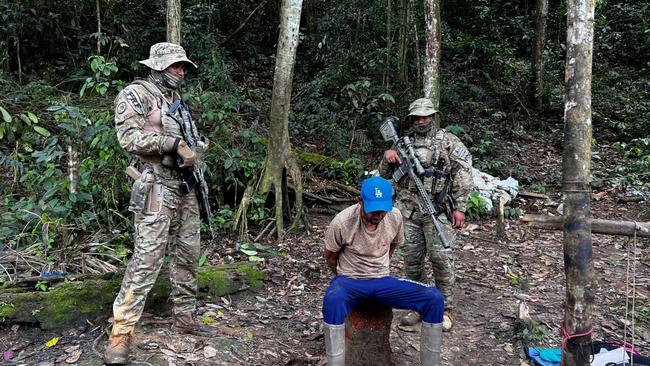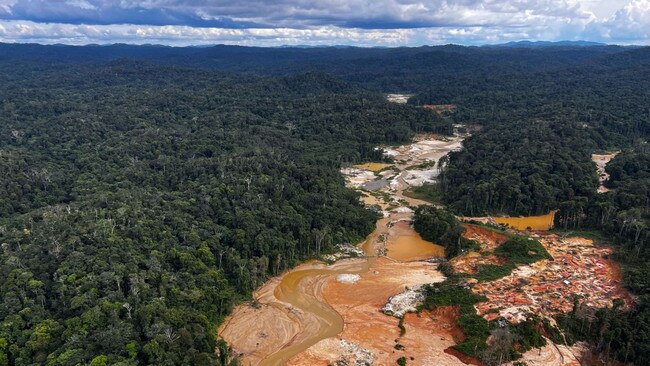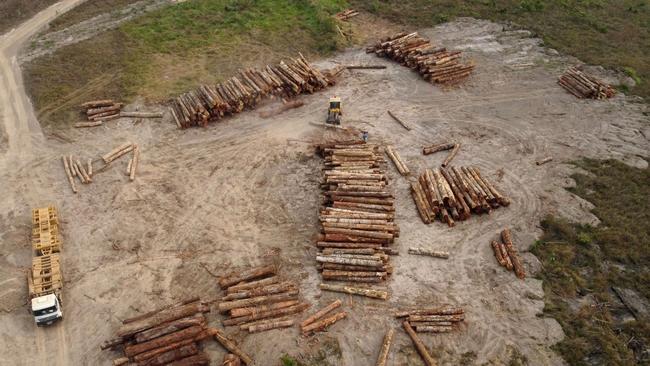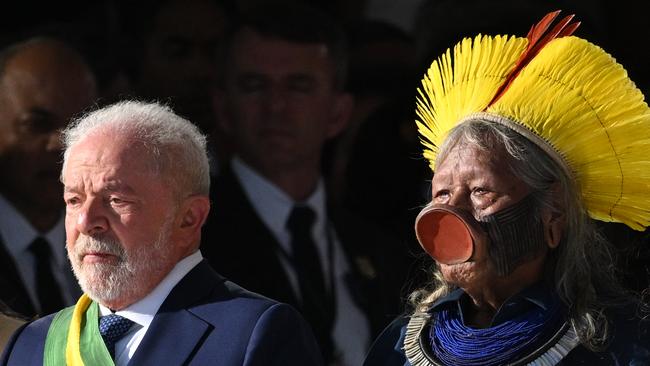Loss of Amazon rainforest slows after change in political climate
Thanks to projects led by indigenous communities and key changes in government in Brazil and Colombia, deforestation levels fell last year.

The rate at which the Amazon rainforest is being destroyed has fallen sharply after many years of logging, mining and fires. Projects led by indigenous communities, and key changes of government in Brazil and Colombia, have ensured a less gloomy prognosis for a vital weapon in the battle against a changing climate.
“We are taking care of the virgin jungle; it is a lung for the planet … we want to conserve it for our community,” said Abelardo Ayutap Orrego, 53, a conservationist with the charity Cool Earth and a member of Peru’s Awajun people. Last year an area of forest the size of Wales was destroyed in South America by logging and fire. Precious habitats, crucial for absorbing CO2, disappeared for ever.

Three years after nations resolved to end deforestation by 2030 at COP26, this may seem clear evidence that the world is far off-track. But it could also be interpreted as a positive sign – a sign that fewer trees were destroyed in 2023 than the year before.
According to a study by the World Resources Institute think tank, deforestation fell by 36 per cent in Brazil and 49 per cent in Colombia. In the Amazon 39 per cent less tree cover was lost in total last year than in 2022. At the heart of these promising figures are two nations and their recently elected leaders.
Brazil’s former president Jair Bolsonaro let deforestation rise to levels not seen since the early 2000s, but in 2022 his successor, Luiz Inacio “Lula” da Silva, promised to reverse the damage. “There is no climate security for the world without a protected Amazon,” he told the COP27 climate summit in Egypt in 2022.

The same year, Gustavo Petro became the new President of Colombia having campaigned on a promise “not to burn the Amazon rainforest any more, to recover it to its natural frontier, to give humanity the possibility of life on this planet”.
WRI’s research suggests that Mr Lula and Mr Petro’s pledges are coming to fruition, and that the continued loss of the world’s rainforests is not inevitable. This raises the questions “what are they getting right?” and “will it be enough to save the Amazon?”
“What is immediately obvious is that the No.1 determinant of whether countries are doing better or worse on deforestation is political will,” said James Deutsch, chief executive of the Rainforest Trust.

On his return to power in January last year, Mr Lula quickly reinvigorated many of the environmental policies he instated during his first two terms, from 2003 to 2010, which Mr Bolsonaro had dismantled. He restored the authority of the environmental protection agency Ibama to combat illegal deforestation and revoked a Bolsonaro decree that allowed mining in indigenous lands. He has also recognised more indigenous territories in the Amazon, granting them legal protections against mining, logging and cattle ranching.
The road to ending deforestation is not without obstacles, however. Staff shortages at Brazil’s environment agency have left it with reduced manpower for inspecting and policing the illegal gold mining.

Mining, particularly on the border between Brazil and Colombia, “leaves giant scars”, said Brian Hettler, director of mapping at the Amazon Conservation Team.
In Colombia, Mr Petro took over from Ivan Duque, who unlike Mr Bolsonaro had been trying to curb deforestation, but to limited effect. Whereas Mr Duque had used the military to target illegal farming settlements in the country’s national parks, Mr Petro has taken a more conciliatory approach, paying communities to leave forests standing.
Outside Brazil and Colombia the Amazon’s prospects look bleaker. In Bolivia, home to nearly a tenth of the Amazon, deforestation rose by 27 per cent, breaking the record for a third year in a row.
Mikaela Weisse, director of the WRI’s Global Forest Watch, believes the increasing incidence of fires in Bolivia and elsewhere may signal that the Amazon is approaching a tipping point, at which damage becomes self-compounding. As more trees are burnt and cleared, the forest’s ability to regulate its own climate weakens, bringing hotter, drier weather and more fire.
Previous research has found that this tipping point may be crossed if 20 to 25 per cent of the forest is cleared – only slightly more than the 15 per cent cleared already. But in February, a study led by Bernardo Flores, of the Federal University of Santa Catarina in Brazil, found that it may have already been crossed, potentially pushing between 10 to 47 per cent of the rainforest into a degraded state by 2050.
The Times



To join the conversation, please log in. Don't have an account? Register
Join the conversation, you are commenting as Logout